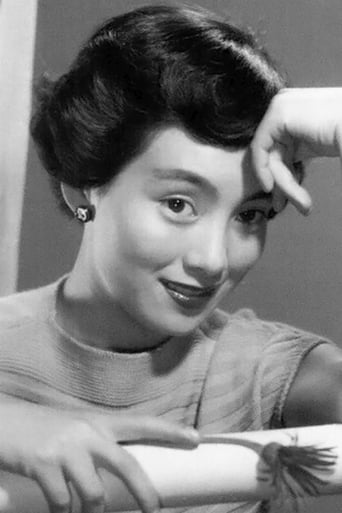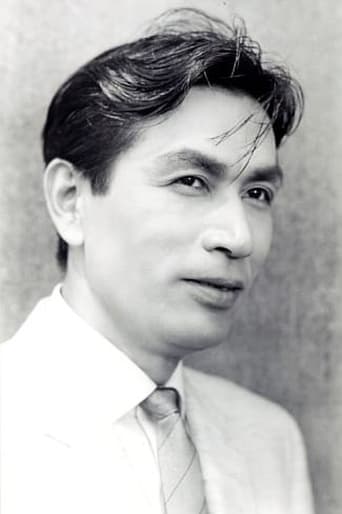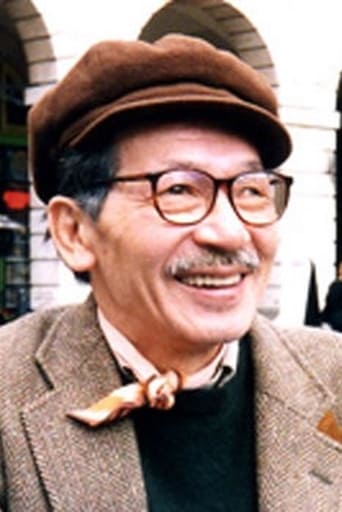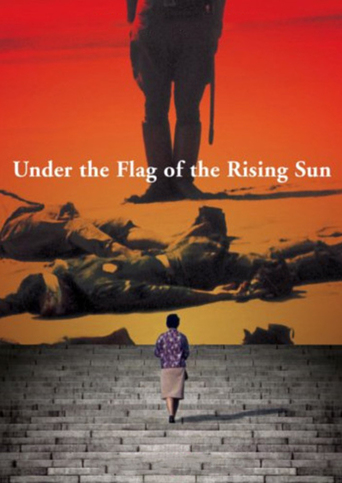
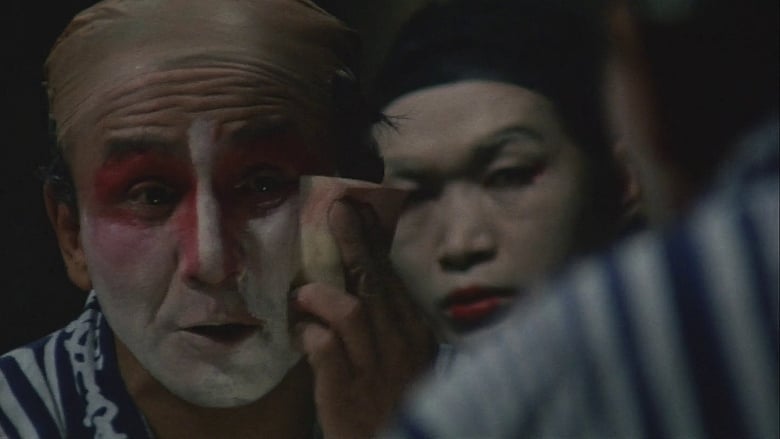
Under the Flag of the Rising Sun (1972)
A war widow determined to clear the name of her disgraced husband, who was court-martialed for desertion and executed. Official records have been destroyed, and the ministry that distributes benefits continues to deny her a pension. Twenty-six years after the war, she seeks out four survivors of her husband's garrison. Each tells a dramatically different story about her husband's conduct, but she is determined to learn the truth.
Watch Trailer
Cast


Reviews
I love this movie so much
It's entirely possible that sending the audience out feeling lousy was intentional
Excellent and certainly provocative... If nothing else, the film is a real conversation starter.
Let me be very fair here, this is not the best movie in my opinion. But, this movie is fun, it has purpose and is very enjoyable to watch.
Director Fukasaku is best known for his cult classic Battle Royale, as well as numerous yakuza flicks from the '70s. Under the Flag of the Rising Sun is really the film he should best be known for. He produced it independently, and it's easily his most prestigious and all-around exceptional film. It's a WWII movie, made from the perspective of a quarter century later. Sachiko Hidari stars as a war widow in 1971 who is still trying to get benefits from the government, as well as restore her husband's honor. He was supposedly executed in the waning days of the war, but any further information has disappeared. To find the truth, she begins searching for veterans who may have known her husband. She interviews several witnesses who give her a conflicting story of her husband, but a pretty vivid picture of what it might have been like to be a soldier fighting in the New Guinea front. The film isn't exploitative, but it can be explicitly violent (most of the flashbacks are in black and white up until the violence starts - Fukasaku does not want the audience to be separate from that). Under the Flag of the Rising Sun is one of the most unflinching of all the great Japanese WWII films. You really feel the pain that still exists in the early '70s. The sequences with the war veteran teacher, watching over his students who have grown up after the war and are completely innocent of it, are especially gut-wrenching. I also loved the performance of Noboru Mitani, best known for playing the irresponsible homeless father in Kurosawa's Dodeskaden, who plays a veteran with a dark secret.
This film puts most war movies to shame. Here is a cinematically beautiful yet shockingly realistic depiction of what war is like. The betrayal of humanity involved on numerous levels is juxtaposed with the individual soldier's will to survive and with one widow's need to know the hidden truth about how her husband died. Her journey of naivete to knowledge and understanding is the central character arc that traverses through the accounts of several veterans from her husband's unit. The gorgeous photography features shot after shot of beautiful landscape that serves as a kind of silent and solitary witness to the mayhem.Nowhere do you see the cloying sentimentality and heroism that stink up so many war films. I give it the highest rating.
Searing indictment of war and the individuals discredited in its aftermath. Directed by the masterful Kinji Fukasaku, it is a harsh, bleak work that uses monochrome flashbacks with occasional explosions of color, war photographs, and grim narration to tell a terrible tale.Sachiko Hidari, a war widow, has spent twenty-six years searching for the truth about her husband's death. Was he executed? Was he a deserter? Was he a hero? As the government adheres to an official, flawed version of events, the stubborn woman seeks her own answers by speaking to the men who served with her husband. The stories told by these damaged soldiers comprise the bulk of the movie and accounts are complicated by each man's "truth".Exceptionally well acted and directed with a savage determination to depict the insanity of war in its rawest state, this is surely one of Fukasaku's greatest achievements and certainly one of the most honest portraits of homosapien behavior ever branded to celluloid.
First of all I have to say that this film is really tough.It's a bit like Rashômon. A widow wants to find out the truth about her husband being apparent executed in the Second World War by Japanese soldiers.But the administration isn't ready to hand out the documents about his dead. So the woman (Hidari Sachiko) tries alone to find out what really happened, by questioning four survivors who knew her husband. And everybody tells a different story (that's why I compare it with Rashômon, although they are set in different sceneries) and they have different opinions about the dead husband. The end turns out to be more horrible than any of you hard-boiled-audition-viewers might expect. Sorry, just kidding. Kinji Fukasaku does its best to disturb the audience. Compared with Battle Royale, Gunki hatameku motoni is much more real and in its way not entertaining at all, what Battle Royale certainly was.Now here its different. You see real WW2-documental shots mixed with directed scenes. So you never forget what the film is about: Reality. He uses the story of the woman to bring the horror of war to the audience in a rather psychological way. With wanting Hidari Sachiko to know what really happened to her husband, the audience learns a lot more about the terror which reigned the battlefields of New-Guinea. Burned-out, hungry troops, sadistic generals blinded by ultra-nationalism, massacre, torture and finally cannibalism, there's nothing better to expect. There isn't for the audience either.The movie has no happy end. Its one of the most disturbing and pessimistic films ever made. Mixed with the documentary and the sad fate of the woman, this film is also a fable for the consequences of a war not so long ago. Which is not common in Japan, where it still remains a taboo. So the audience has learned something when the film ends. However, this is how I consider this film. It might be different for other people. My brother watching it with me, was stunned. But some people left the theater as well. I only recommend it to anybody who liked both "Paths of Glory" and "Bullet in the Head" or who is interested in Japanese History and its problems anyway.


